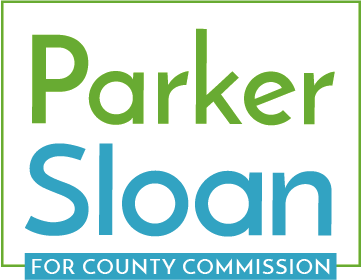My Policy Vision & Priorities
Our Schools & Our Children
Raising teacher pay is vital. I have voted to increase the supplemental pay provided by Buncombe County to our educators and will continue to advocate that we increase it further to keep up with our local rising cost of living. Without quality public schools, jobs and people will migrate to other counties and states. Buncombe County has done a good job of building new schools and rehabbing older schools in the past decade. I will continue to make sure our kids have safe, modern buildings to spend their days in. School construction decisions for Asheville City, Buncombe County and AB-Tech are made by our Buncombe County Commission.
I would also continue to support joint public and private investment in pre-K education. Investing in each child's first 2000 days creates the best outcome in education, health, and economic well-being for a lifetime. Universal pre-K is an obvious urgent need that cannot wait for more support from the state or federal government. I want to continue the work of Commissioner Jasmine Beach-Ferrara to financially support increasing available classroom slots and helping to establish more preschool teachers.
Infrastructure and Transportation
Buncombe County is not just a beautiful rural community, it’s now in the urban planning business and we need to continue behaving that way by working together to 1) maintain/expand bus services focused on increasing ridership, 2) Invest in more walkable communities with sidewalks and bike paths, 3) expand our mobility options into e-bike rental programs and car share programs. Rethinking our transportation and infrastructure policies are crucial to both curbing carbon emissions. Limiting NCDOTs boundless interest in wider faster roads is also critical to being able to afford 21st century infrastructure that actually reduces car trips and allows for safe streets and neighborhoods for kids and retirees alike. These same policy changes and choices are foundational to making it easier and more affordable for people to live and work In Buncombe County.
Affordable Housing
Solving for housing scarcity is the single biggest issue facing our county and region, it is the problem or issue from which so many of our other issues come from. The existence of the unhoused is a housing scarcity problem, the inability of employers to attract and hire enough workers is in part a housing scarcity problem. The growth of suburbs at ever increasing distances from Asheville is also due in part to housing scarcity.
We must encourage, allow, and simply require more housing development on major transportation corridors, and in the heart of urban Asheville, instead of sprawling across our county. This includes investing in public transportation, walkable neighborhoods, and encouraging more housing of all types and sizes. That does include apartments and multifamily dwellings, both small and large. But we need more of all types of workforce housing. Tiny homes, quadruplexes, mother in-law suites, basement apartments, garage apartments, etc. Ending suburban “highway exit” style commercial development is also crucial as it gobbles up valuable land, excludes housing, and threatens the balance of our economy.
Our Changing Climate
The good news is that the transition to a clean energy based economy is underway and is happening much faster than most people realize. Climate science, however, tells us that we are not moving fast enough and need to accelerate things. This decade is an exceptionally important decisive decade to do 3 things quickly 1) clean up our electric grid by using more distributed clean power 2) stop burning gas in our homes and businesses to heat them and heat water by switching to superior electric appliances 3) Drive less miles and electrify transportation. Buncombe County has a role to play in supporting our citizens with all of these transitions.
Public Health
I agree with our Buncombe County Sheriff Quentin Miller that we cannot arrest our way out of addiction, poverty and mental health issues. Addiction is a disease and our MAT drug treatment program at the Buncombe County Jail is helping individuals get into long-term recovery. Detainees across North Carolina are 40 times more likely to overdose on opioids after release from jail or prison. Once an opioid user’s drug tolerance has decreased after being incarcerated they are at high risk if they use again. MAT helps prevent overdoses for those reentering our community.
Our Community Paramedic Program and Post-Over Dose Response Team (PORT) are innovative programs from EMS that are unlike anything else in WNC that also deliver MAT to those struggling with addiction. I have been proud to vote for the expansion of these life-saving programs during my time on commission.
County Commissioners and Asheville City Council must work together to open a low-barrier shelter so that homeless folks have a place to go and law enforcement has an alternative to citations or arrests for low-level, non-violent disturbances. A dedicated shelter should also include not just a warm, safe place to sleep and a meal, but mental health services and addiction treatment options.

